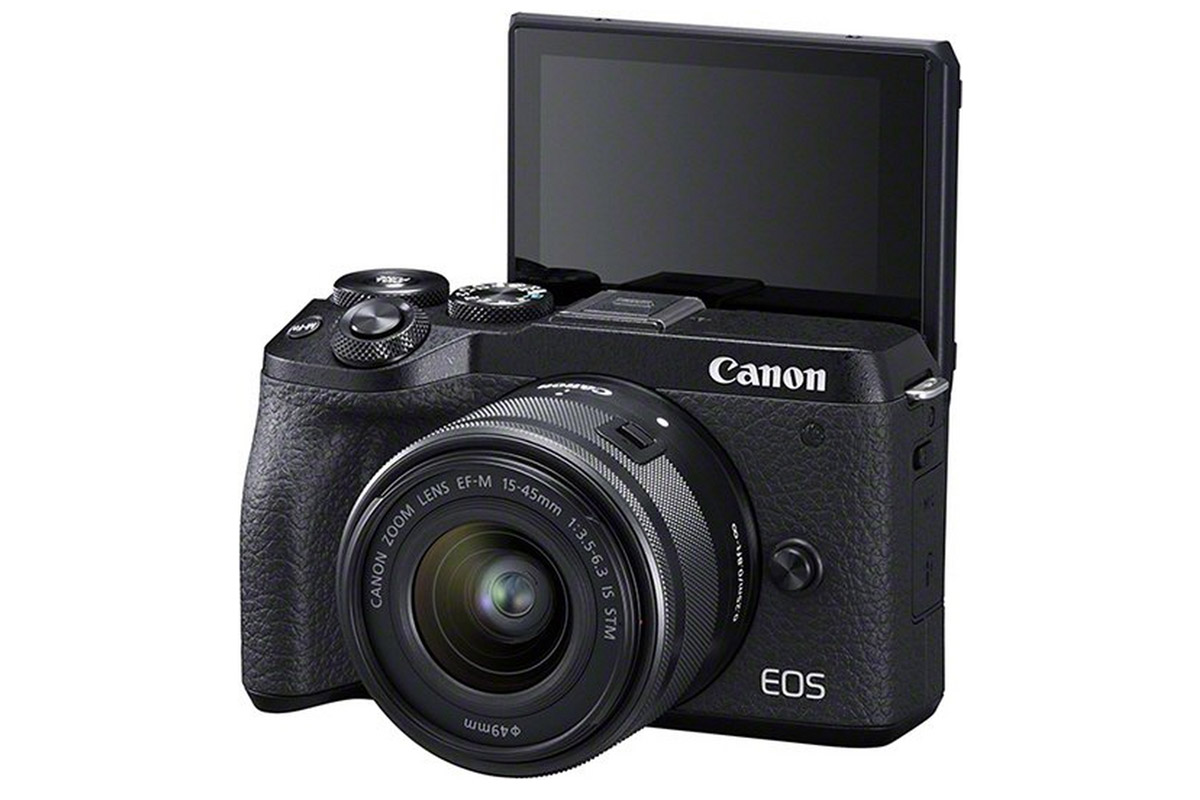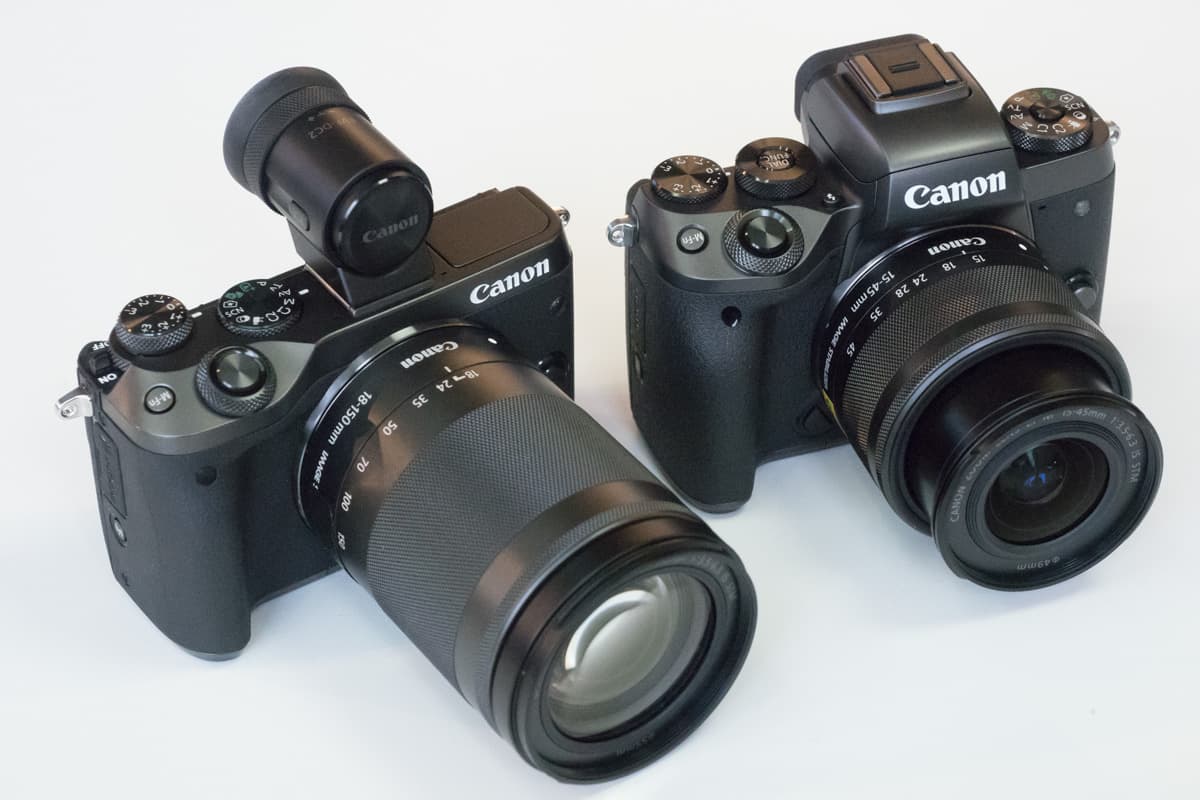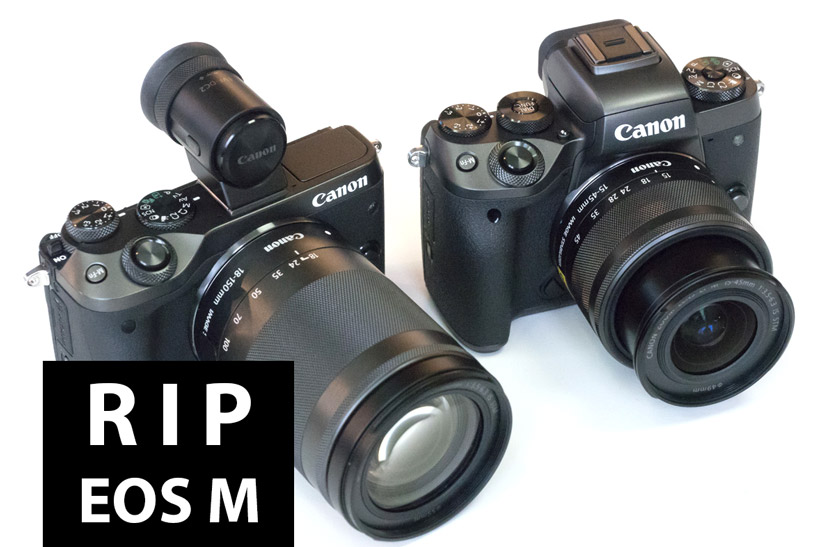Is this the end of the line for Canon’s EOS M series?
With the introduction of new APS-C sensor RF-mount mirrorless cameras from Canon, is this the end of the line for the Canon EOS M series? Introduced in 2012, the Canon EOS M series never really seemed to be a complete system. In 10 years, Canon introduced 11 new cameras, and only 8 lenses…
Note for future historians: if a camera system has more camera bodies than lenses, then something’s wrong.
Canon’s first EOS M camera was introduced in 2012, with an 18MP APS-C CMOS sensor, it was extremely compact, with little grip, and no electronic viewfinder, it was more like a compact camera than a mirrorless camera.
Canon introduced some interesting lenses, such as the 11-22mm IS STM, and 32mm F1.4 (2018), but for the most part, the lenses introduced for the EF-M mount were “kit” zoom lenses, with plastic lens mounts. Not that plastic lens mounts are necessarily a bad thing, but most photographers would prefer a metal mount, and the lack of any “serious” lenses for the system gives you an idea of how Canon viewed the system.

Canon EOS M6 II
In fact, Canon released some very nice cameras, including the Canon EOS M5 (2016), with good handling, and an electronic viewfinder. There was even the 32.5MP Canon EOS M6 II (2019), which offered the highest resolution APS-C sensor (alongside the Canon EOS 90D), but unfortunately no built-in viewfinder. But even with excellent cameras, whenever I thought about the actual practicalities of buying and using one, I was left wondering what lens(es) would I actually want to use with the camera. (In case it’s not obvious: There were pretty much none, or rather, there might be one lens, but what camera system is complete with only one lens?)
It wasn’t until Sigma released its range of mirrorless lenses for EF-M mount, in 2019, that I again gave the EOS M cameras some serious thought. But still I was aware of the system having no apparent future, as by this time Canon had already introduced the EOS R / RF system. And even if there were 1 or 2 lenses that I would want to use with the system, why would I limit myself, when other camera systems offer 10s if not 100s of lenses? (Micro Four Thirds)

Place the viewfinder on the EOS M6, and becomes larger than the EOS M5.
The future is mirrorless, and in Canon’s case, that’s RF-mount
When the full-frame EOS RF system was announced with a new lens mount (in October 2018), it was almost inevitable that Canon would introduce APS-C versions of these cameras, particularly as the RF mount was and is Canon’s future for cameras, replacing DSLRs in Canon’s line up, which in case you haven’t noticed, as being discontinued left right and centre, particularly the lenses available.
Just to be clear, you can’t use Canon EF-M (EOS M) lenses on any other camera. The lenses can’t be adapted to be used on RF mount cameras. They’re effectively end-of-line, like the Samsung NX series (and NX-mini series), Nikon 1 series (remember them?), the Olympus/Panasonic Four Thirds system, and the Pentax Q system. Of all of these, do you miss them?

Canon EF-M 32mm F1.4 Lens
It would be madness for Canon to introduce any new EOS M cameras or lenses…
If you have an EOS M camera, and lenses, then of course they’ll continue to work, but it’s clear, the writing is on the wall for the system. Canon hasn’t yet declared that the system has been discontinued, as no doubt there’s still new stock out there waiting to be sold, but take it from us, the Canon EOS M system has effectively been discontinued, by the introduction of new APS-C RF mount cameras.
So, just to be clear, is the Canon EOS M system discontinued?
Whilst not official, it’s almost inevitable, and only a matter of time before the EOS M system is officially discontinued, and until then, it’s pretty clear that it’s effectively been discontinued with the introduction of the new APS-C RF mount cameras.
Let’s just hope Canon realise that even APS-C cameras need a good range of lenses, as a good range of lenses can make or break a system. On that note, have a look at the new Canon EOS R7 and Canon EOS R10 which have just been announced, as well as the new lenses introduced with the system, and let us know what you think. Hopefully Canon won’t make the same mistakes they made with APS-C lenses for RF mount that they did with the EF-M system…
Read our Canon EOS R7 First-Look Review
Canon EOS R7 and R10 announced







